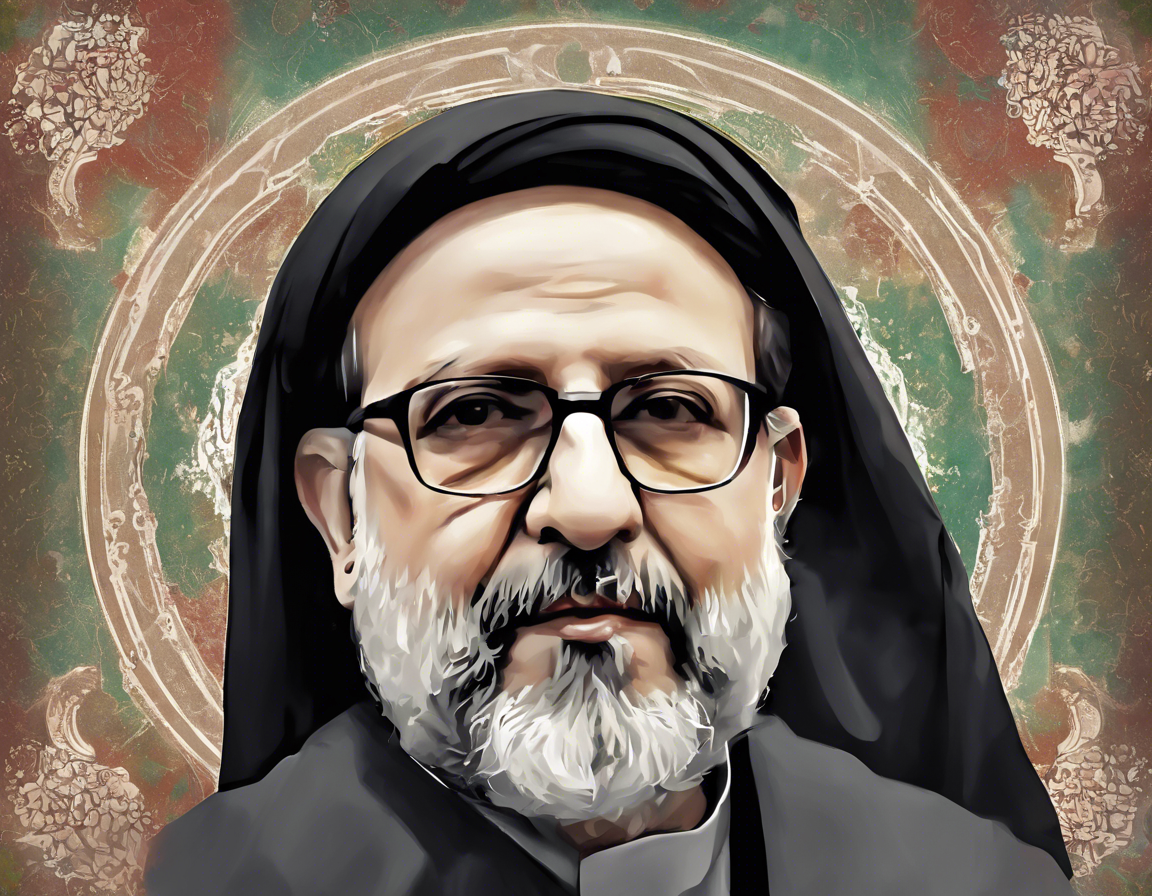In recent years, there has been a growing interest in the enigmatic figure of Ebrahim Raisi, a prominent Iranian politician who served as the Chief Justice of Iran’s judiciary and ran for president in 2021. Raisi’s sudden rise to power and his controversial past have intrigued many, leading to various speculations and conspiracy theories surrounding his life and death. This article aims to delve into the truth behind Ebrahim Raisi – his background, political career, and the circumstances of his demise.
The Early Life of Ebrahim Raisi
Born in 1960 in the holy city of Mashhad, Ebrahim Raisi was raised in a religious and politically active family. His father, Seyed Haji, was a prominent cleric, and his mother, Sakineh Saqqa, a devoted homemaker. Raisi’s upbringing in a devout household shaped his worldview and instilled in him a deep commitment to Islamic principles.
Political Career and Controversies
Raisi’s political career began in the early 1980s when he served as a prosecutor in various cities across Iran. He gained recognition for his hardline stance against dissidents and played a key role in the execution of thousands of political prisoners in 1988. This dark chapter in Raisi’s past has haunted him throughout his career, with critics labeling him as the “Butcher of Tehran.”
Despite these controversies, Raisi continued to climb the ranks of Iran’s judicial system, eventually becoming the Chief Justice in 2019. During his tenure, he was known for his strict interpretation of Islamic law and crackdown on civil liberties, earning him the support of conservative factions within the Iranian government.
Presidential Ambitions and International Relations
In 2021, Ebrahim Raisi announced his candidacy for the Iranian presidential election, positioning himself as a populist candidate who would champion the interests of the working class. His campaign was marked by promises of economic reform and a return to traditional values, resonating with many Iranian voters disillusioned with the country’s economic hardships and international isolation.
Raisi’s victory in the election raised concerns among Western nations, who viewed him as a hardline conservative with little regard for human rights. Tensions between Iran and the West further escalated during his presidency, with Raisi taking a confrontational stance on issues such as the nuclear program and regional conflicts.
The Mysterious Death of Ebrahim Raisi
In a shocking turn of events, Ebrahim Raisi was found dead in his home in Tehran in 2023. The circumstances surrounding his death remain shrouded in mystery, with conflicting reports from Iranian authorities and international observers. Some speculate foul play, citing Raisi’s controversial past and enemies within the government as possible motives.
Despite the uncertainty surrounding his demise, Raisi’s legacy continues to spark debates about his role in Iranian politics and the future of the country. His death has left a power vacuum in the government, leading to further instability and speculation about who will succeed him.
Conclusion
Ebrahim Raisi‘s life and career are a testament to the complex interplay of religion, politics, and power in Iran. From his humble beginnings in Mashhad to his controversial tenure as Chief Justice and president, Raisi left a lasting impact on the country’s political landscape. His sudden death only adds to the mystery surrounding his legacy, inviting further scrutiny and analysis of his life and untimely demise.
Frequently Asked Questions (FAQs)
1. What were Ebrahim Raisi‘s key policy initiatives during his presidency?
During his presidency, Ebrahim Raisi focused on economic reform, social welfare programs, and strengthening Iran’s position in regional and international affairs.
2. Was Ebrahim Raisi‘s death officially ruled as natural causes?
While Iranian authorities initially stated that Raisi died of natural causes, many skeptics believe foul play might have been involved, given his controversial past and enemies within the government.
3. How has Ebrahim Raisi‘s death impacted the political landscape of Iran?
Ebrahim Raisi‘s death has created a power vacuum in the Iranian government, leading to increased instability and speculation about his potential successor.
4. What legacy does Ebrahim Raisi leave behind in Iran?
Ebrahim Raisi‘s legacy is a divisive one, with supporters praising his conservative values and critics condemning his human rights record and authoritarian tendencies.
5. What role did Ebrahim Raisi play in Iran’s nuclear program?
As president, Ebrahim Raisi took a hardline stance on the nuclear program, vowing to protect Iran’s right to nuclear development while challenging Western sanctions and pressure.
6. Did Ebrahim Raisi have aspirations for regional dominance in the Middle East?
Ebrahim Raisi pursued a more aggressive foreign policy in the Middle East, supporting militant groups and challenging Saudi and Israeli influence in the region.
7. How did Ebrahim Raisi‘s past as a prosecutor influence his political career?
Ebrahim Raisi‘s role in the execution of political prisoners in 1988 tarnished his reputation but also solidified his standing within the conservative establishment, shaping his approach to governance.
8. What was Ebrahim Raisi‘s relationship with the Supreme Leader of Iran?
Ebrahim Raisi had a close relationship with Supreme Leader Ayatollah Khamenei, who supported his candidacy for president and endorsed his hardline policies.
9. Why did Ebrahim Raisi resonate with a significant portion of the Iranian electorate?
Ebrahim Raisi‘s populist rhetoric and promises of economic reform appealed to many Iranians disillusioned with the country’s economic hardships and international isolation.
10. What challenges did Ebrahim Raisi face during his presidency?
Ebrahim Raisi faced mounting pressure from Western nations, economic turmoil, and internal dissent, testing his leadership and the stability of the Iranian regime.
